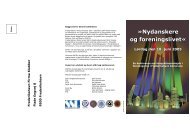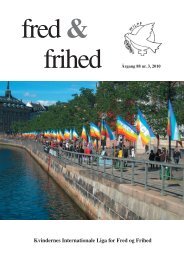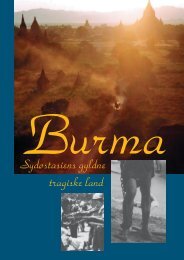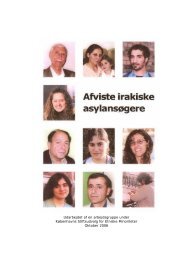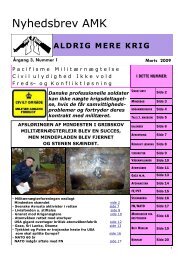Untitled
Untitled
Untitled
You also want an ePaper? Increase the reach of your titles
YUMPU automatically turns print PDFs into web optimized ePapers that Google loves.
WHAT WAS LEARNED 85<br />
engaged in Middle East operations. At Nicosia there were only two<br />
officers and two typists to deal both with Iran and with several other<br />
countries of the Middle East. At London headquarters no individual<br />
was exclusively concerned with Iran, and the one specialist in the<br />
field appeared to be spread out over the Middle and Far East. This<br />
shortage of personnel was directly reflected in a number of ways<br />
which seemed quite surprising at first glance. An example of this is<br />
the fact that the representative in Washington had to spend a good<br />
part of his time in enciphering and deciphering. The character of this<br />
limited personnel was also of interest for we were informed that all<br />
the old colonial hands and all the veterans of the India Office had<br />
been dispensed with. Certainly the two Nicosia officers who were<br />
dealing with the Agency were both young and had a very sound<br />
foundation. The one in charge has had six years in the country and is<br />
extremely fluent in the language, while the younger, still a<br />
probationer, also knows the language well.<br />
Other lessons learned from the operation relate to Headquarters<br />
and station capacities for planning, and to the capabilities of the<br />
local agents to execute general and specific directives. First, we may<br />
make a brief critique of Headquarters planning.<br />
As had been pointed out in some detail in earlier pages, the<br />
operational plan grew directly from a series of basic assumptions,<br />
established by CIA in collaboration with SIS. In briefest review, the<br />
principal assumptions were:<br />
1. The Shah could be persuaded to take desired action if<br />
all-out pressure were applied.<br />
2. Assurance that the Shah was behind him would both<br />
cause Zahedi to act and would win him the support of many<br />
officers in key positions.<br />
3. Forced with a choice between following the orders of<br />
the Shah and those of Mossadeq, the rank and file of the<br />
army and its officers would obey the Shah.<br />
The assumptions, whether presented as such within the oper-



